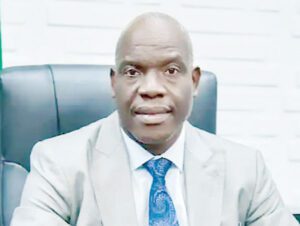
We are most exposed to adverse impact of climate change — DG NILDS cries out
By Akinyemi Precious
The Director General, National Institute for Legislative and Democratic Studies (NILDS), Professor Abubakar O. Suleiman has said that although African countries contribute less than four per cent of global emissions, the recent poverty data in many African countries and Nigeria in particular shows that our continent remains the most exposed to the adverse impact of climate change.
He said this at his opening speech at the West Africa Regional Parliamentary Meeting on Climate Change with African Group Of Negotiators Expert Support (AGNES) in collaboration with the National Institute for Legislative and Democratic Studies (NILDS) and The National Council on Climate Change, Nigeria held in Lagos, Nigeria during the week.
The conference with the theme, ‘Fostering climate change action through legislative Measures: Perspectives for the West African Region’ focused on how parliamentarians in West Africa ensure that laws passed enable commitment to net zero emission and useful insights into how to better position Africa to negotiate more effectively during the COPs and to mainstream climate change actions in their responsive countries through the passage of climate change as well as climate change fund laws.
In his words, “Evidence from the best available science shows that unless countries act collectively, the world might not be able to attain the Paris Agreement target of 1.5 degrees. While countries in other climes have continued to entrench measures that would enable de-risk their consumptions and production system to deliver on greenhouse emission targets, African countries especially those in the West African region, have continued to grapple with multidimensional poverty.
“Although the general narrative is that African countries contribute less than 4 per cent of global emissions, the recent poverty data in many African countries and Nigeria in particular shows that our continent remains the most exposed to the adverse impact of climate change.”
He made it known that, “It is vital that African countries work together with the rest of the world to adopt policies that would deliver on climate change adaption and mitigation policies and it is important that we act together to ensure that right choices are made in resource allocation, reward sustainable consumption and production as we are 7 years away from the SDGs 2030.”
He noted that unless deliberate measures to pursue green growth and sustainable development are taken, the positive results recorded in other sectors would be rolled back by the adverse impact of climate change through flooding, increased warming, desertification, and deforestation.
He made reference to the fact that most countries are still going back and forth on passing a climate change. In 2016, Kenya passed its climate change Act. Nigeria and Uganda followed suit by passing their climate change acts in 2021.
While these legislations created the National Council for Climate Change for Nigeria and a climate change Secretariat for Kenya, there are gaps in these legislations that require further legislative engagement to address.
“One of the ways by which this will be made possible is through The Global Climate Fund (GCF) which provides an opportunity for developed countries to support developing countries in national climate actions on adaptation, mitigation, and disaster risk reduction.
“Also, the National Institute for Legislative and Democratic Studies (NILDS) aims to achieve this through law-making, representation, and oversight and comply with net zero emission targets.
“There had been prior collaborations with the Nigerian Natural Resource Charter (NNRC) and FOSTER to develop a toolkit to mainstream climate change decisions, the UN Women to develop a toolkit for the legislature in Nigeria that mainstreams gender-responsive budgeting along with its climate change aspects in the budget process and now, through AGNES and the National Council on Climate Change (NCCC) to mainstream climate change actions in agriculture, the environment, and climate change.
“The most recent support provided by NILDS is in the analysis of a Bill for an Act to provide for the Establishment of the Nigeria Climate Change Fund and for related matters, as well as to train new legislators in the overall duties of law making and national development.”
While speaking with the media, he made it known that Nigeria lost almost $6billion on account of flooding and monitoring needs policy and legal framework and laws to prevent global warming, deforestation, flooding, charcoal menace etc.
“How do we make sure we come up with legislations on climate change to save the lives of our people, to save our livestock, to save our plants, to save agricultural products, to ensure survival and well being of our people?” he said while expounding on the aim of the conference as sensitisation will be made to the government, newly elected leaders, critical Stakeholders, legislators and technicians on the issues challenging climate change.
Director, AGNES, Professor Raymond Kasei made it known that,“We have been doing a lot of talking and technical work and there is need for implementation and the conference being a start. Also, Africa has to take steps in order to access the Loss and Damages Fund and the conference will play a pivotal role as regards the conference of parties coming up in December in Dubai.”
DG, NCCC, Dr Salisu Dahiru (Host), made note that infrastructure being lost and lives being lost by the government due to climate change are much and bringing the technocrats and legislators together will promote a better understanding of those technicalities and yield appropriate legislations that will be easy to implement, easy to monitor and help bring about the changes needed.
In attendance were Director General, NILDS, Professor Abubakar O. Sulaiman; DG, NCCC, Dr Salisu Dahiru; Chairman, Senate Committee on Agriculture, Senator Yahaya, Abdullahi among others.
African countries such as Liberia, Benin Republic, Cote D’Ivoire, Ghana, Guinea, Togo among others were present.



